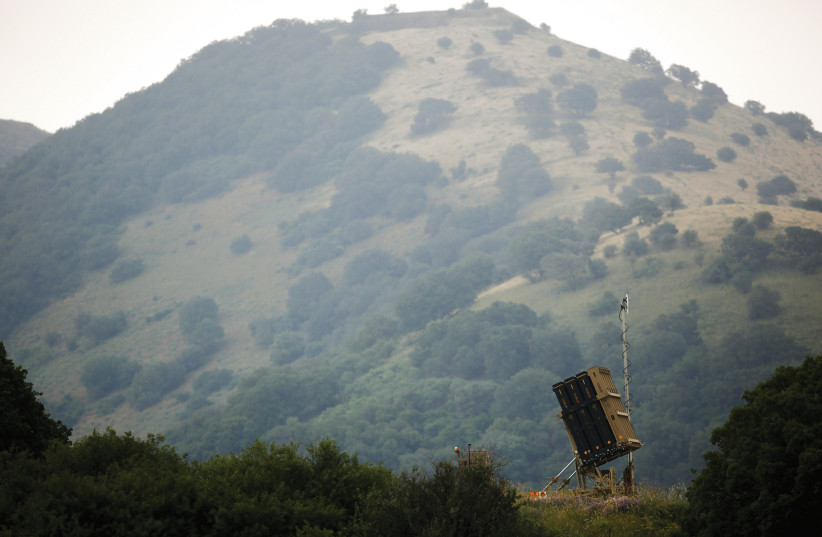The incident comes on the backdrop of the accusation that Israel sabotaged the Iranian Natantz nuclear facility, in addition to cyberattacks carried out on Iran.
SETH J. FRANTZMAN
On Friday afternoon, just around noontime, an incident unfolded near the large Druze town of Majdal Shams on the Golan Heights. Initial reports by the IDF said that explosions were heard near the security fence on the Syrian side, and damage to a building and vehicle occurred on the Israeli side from shrapnel.
This comes amid heightened tensions with Hezbollah. On Thursday Israel sent additional forces to the north. Hezbollah’s social media has been full of claims they will retaliate for what they say was the death of one of their members in a July 20 airstrike in Syria. That man Kamal Ali Mohsen was given a funeral and martyr’s burial.
The pro-Hezbollah Al-Mayadeen media, based out of Beirut, has highlighted Israel’s recent tight-lipped discussions about recent strikes, asserting that Israel is no longer discussing strikes “attributed” to Israel. This appears to be in light of recent tensions and an attempt to not stoke more tensions than are already there.
In addition, Iranian sources tried to blame Israel for intercepting an Iranian Mahan air flight in Syria on Thursday, and pro-Iran media have continued to push stories about cyberattacks on Iran and the sabotage at the Natanz nuclear facility. That is the context in which the incident in the Golan unfolded, where many are on edge in the region.
In the past Hezbollah has warned about retaliation for the killing of any of its members, whether in Lebanon or Syria. That means that it was under pressure after the death of Mohsen. Earlier this year, Hezbollah cut three holes in the fence along the Lebanon-Israel border and bragged about doing so as a message to Israel.
Last year, Hezbollah members were killed near the Golan as part of a Syrian “killer drone” team. That same day, Hezbollah claimed that a drone tried to attack their office in Beirut. Hezbollah responded with an anti-tank missile fired at an Israeli vehicle from Lebanon. Hezbollah’s fence cutting earlier this year was also in response to what they said was an attempted attack on a vehicle on the Syrian side of the Lebanese border.
However, Hezbollah did not respond to the death of at least two of its operatives in the Golan, one in July 2019 and one in February 2019. Hezbollah has what is called the “Golan file,” an attempt to infiltrate areas near the Golan ceasefire lines and to create cells and networks in the area of the village of Khadar across the border from Majdal Shams. They also have a network of other operatives.
Syrian media has said that Syria was responding to “hostile” elements along the border near Quneitra and this set off the incident. The overall picture is that tensions over Hezbollah’s threats to retaliate continue to overshadow tensions along the border and this includes both the Lebanese and Syrian border. Hezbollah’s leadership has said in the past that retaliation may take the form of threats in different areas, vowing to respond in a way that is different than in the past.
Israel intercepted four rockets near the Golan fired from Syria in November 2019. Al-Arabiya reported that two rockets were also fired from Syria toward the Golan in May 2020. Reuters reported on June 1, 2019 that Israel carried out strikes in Syria after rockets were fired at the Golan. Rockets were also fired in February 2019 in January 2019, and a drone in February 2018 and a salvo of rockets in May 2018.
Content retrieved from: https://www.jpost.com/middle-east/is-golan-incident-linked-to-tensions-over-hezbollahs-retaliation-636204.
